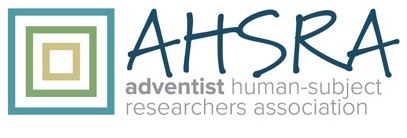Location
Buller Hallway
Start Date
17-5-2018 5:00 PM
Description
We, along with others, developed the 2017-18 Global Church Member Survey currently being used by the Seventh-day Adventist Church to assess the quinquennial Church Strategic Plan. We included items for comparison to previous surveys, along with items to measure performance indicators from the Strategic Plan. However, our unique contributions were grounded in a novel theoretical framework based on Biblical principles and concepts in the social sciences. The Biblical contribution to the core of this framework focused on scriptural teaching on discipleship and God’s active role believer’s lives. The social science contribution to the core integrated theories of motivation (Deci & Ryan, 2008; Greenberg, Solomon, & Arndt, 2008; Koole, Greenberg, & Pyszczynski, 2006; Pyszczynski, Greenberg, & Goldenberg, 2003; Ryan & Deci, 2000) and hope (Bernardo, 2010; Snyder, 2002) from psychology, faith development (Dudley, 1994; Ji, 2004) from religious studies, social bonding (Hirschi, 1969; Yang et al., 2017) from sociology, and social capital (Häuberer, 2011; Putnam, 2003) from economics and development. We recognized several themes that repeated across the core. First, two motivational engines—on-going social relationships and hope for the future—drive beliefs and actions, both generally, and for believers particularly. Second, believers’ relationships and hopes involve both other human beings and God. Finally, differences in the availability (Gagné, 2003) of relationships and hope result in religious motivations ranging (Bailey & Timoti, 2015; Ryan, Rigby, & King, 1993) from wholeheartedness through perceived imposition to amotivation (lacking motivation). In our presentation, we will provide a description of the theoretical framework, review the research literature justifying the framework, and illustrate its utility through examples that demonstrate that model components measured by well-being, active church involvement, commitment to social justice, family bonding, and a strong personal devotional life positively relate to future commitment to the church and practicing an Adventist health life style.
P-09 A Conceptual Framework for Analyzing the 2017-2018 Seventh-day Adventist Global Church Member Survey
Buller Hallway
We, along with others, developed the 2017-18 Global Church Member Survey currently being used by the Seventh-day Adventist Church to assess the quinquennial Church Strategic Plan. We included items for comparison to previous surveys, along with items to measure performance indicators from the Strategic Plan. However, our unique contributions were grounded in a novel theoretical framework based on Biblical principles and concepts in the social sciences. The Biblical contribution to the core of this framework focused on scriptural teaching on discipleship and God’s active role believer’s lives. The social science contribution to the core integrated theories of motivation (Deci & Ryan, 2008; Greenberg, Solomon, & Arndt, 2008; Koole, Greenberg, & Pyszczynski, 2006; Pyszczynski, Greenberg, & Goldenberg, 2003; Ryan & Deci, 2000) and hope (Bernardo, 2010; Snyder, 2002) from psychology, faith development (Dudley, 1994; Ji, 2004) from religious studies, social bonding (Hirschi, 1969; Yang et al., 2017) from sociology, and social capital (Häuberer, 2011; Putnam, 2003) from economics and development. We recognized several themes that repeated across the core. First, two motivational engines—on-going social relationships and hope for the future—drive beliefs and actions, both generally, and for believers particularly. Second, believers’ relationships and hopes involve both other human beings and God. Finally, differences in the availability (Gagné, 2003) of relationships and hope result in religious motivations ranging (Bailey & Timoti, 2015; Ryan, Rigby, & King, 1993) from wholeheartedness through perceived imposition to amotivation (lacking motivation). In our presentation, we will provide a description of the theoretical framework, review the research literature justifying the framework, and illustrate its utility through examples that demonstrate that model components measured by well-being, active church involvement, commitment to social justice, family bonding, and a strong personal devotional life positively relate to future commitment to the church and practicing an Adventist health life style.



